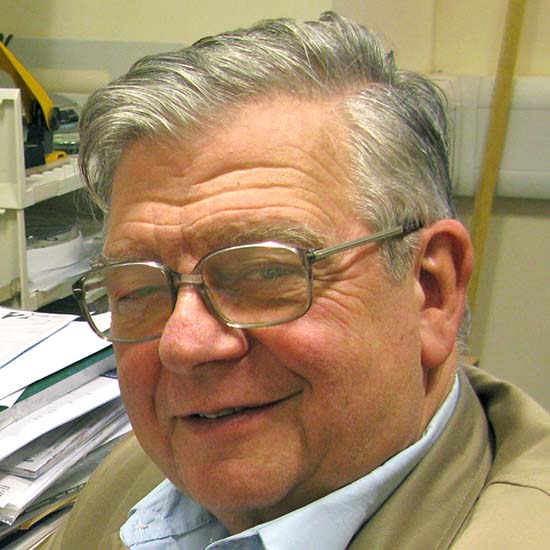Walter Bodmer is a geneticist with a wide field of study. Walter has made major contributions to the study of the genetics of human populations, gene mapping and cancer genetics and to our understanding of the human tissue typing system. He was one of the first to suggest the idea of the human genome project.
Early in his career, Walter helped to discover the human leukocyte antigen (HLA) system, vital for the success of organ and bone marrow transplants. Walter’s interest in human populations led him to set up a UK population gene bank that could be used as a control group in research. More recently, he has successfully grown bowel cancer cells in the lab in structures similar to those found naturally inside the bowel.
Walter is credited with beginning the movement for the public understanding of science, having chaired the first committee set up to establish standards for communicating science and technology. He was the first Director General of the Imperial Cancer Research Fund and was knighted in 1986.
Professional position
- Head of the Cancer and Immunogenetics Laboratory, Department of Oncology, University of Oxford
- Head of the Cancer and Immunogenetics Laboratory, Cancer and Immunogenetics Lab, MRC Weatherall Institute of Molecular Medicine (WIMM)
Subject groups
-
Patterns in Populations
Population genetics
-
Molecules of Life
Cell biology (incl molecular cell biology)
-
Other
Public understanding of science
Awards
-
Michael Faraday Prize and Lecture
For his outstanding achievement in raising the public understanding of science and technology as an issue of the highest importance to individual scientists and engineers and to many bodies that represent them.
-
Bernal Lecture
On 'The public understanding of science'.
-
Royal Medal
For seminal contributions to population genetics, gene mapping and understanding of familial genetic disease.

